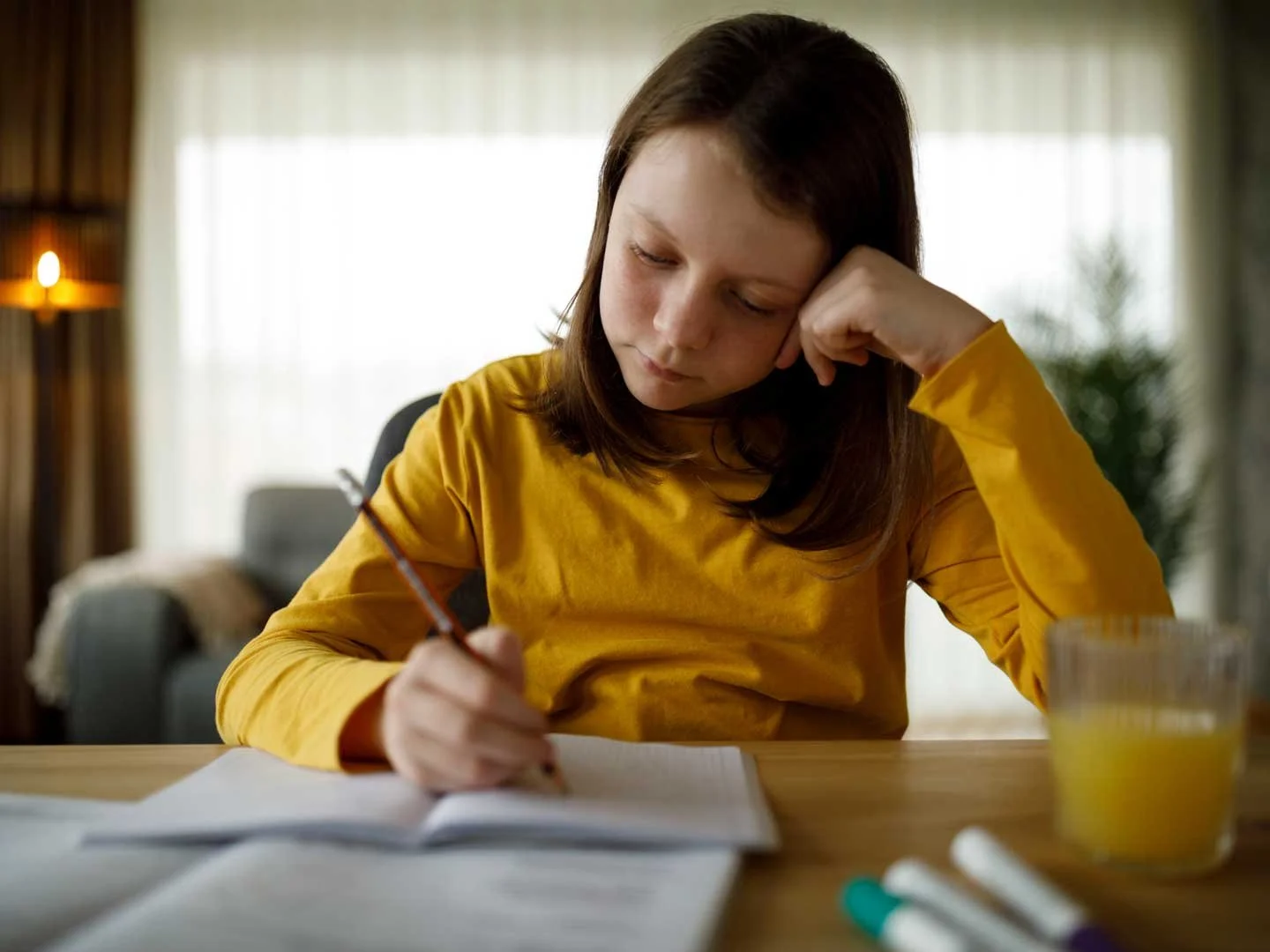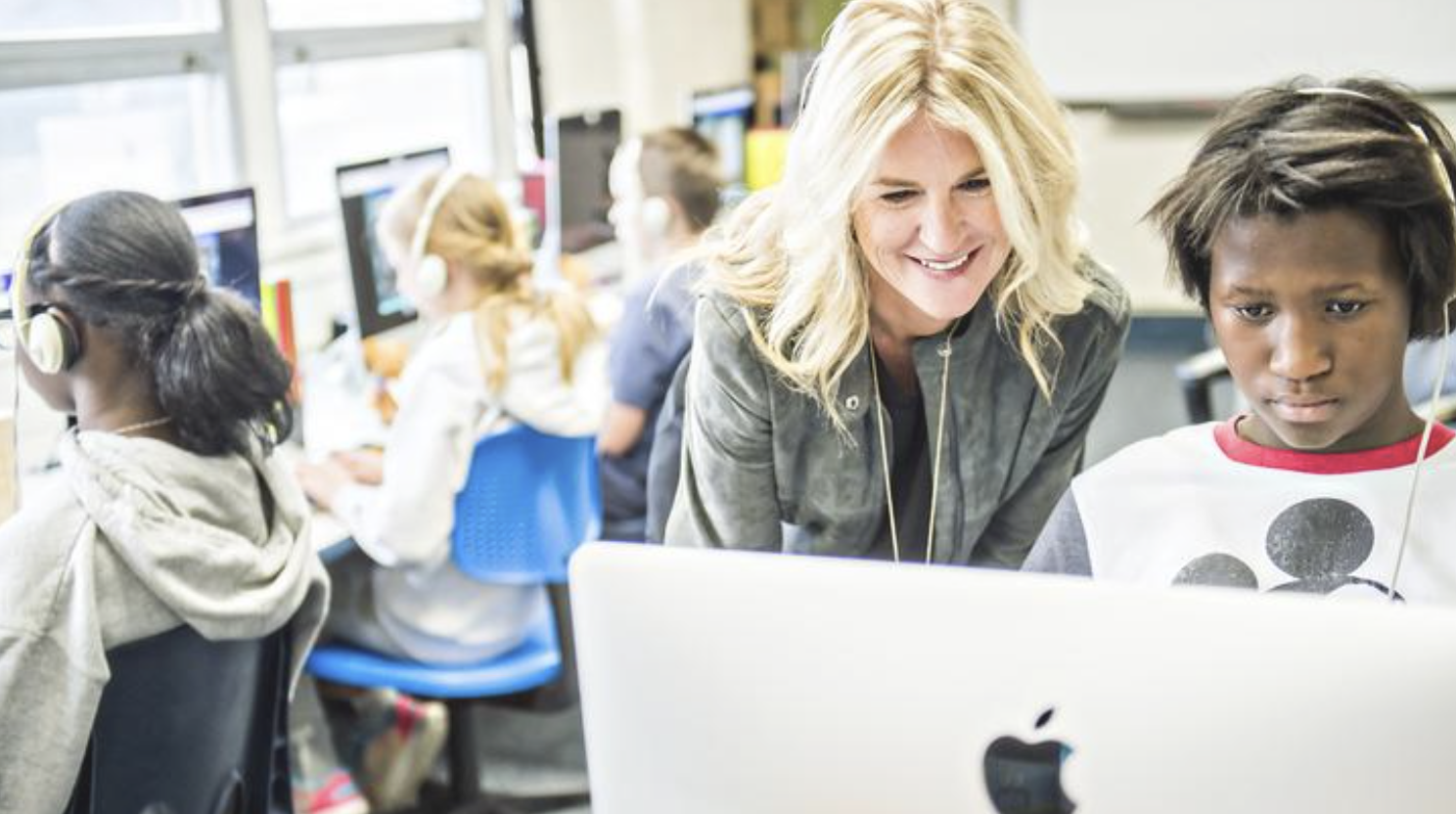Finding the
Right Fit
Choosing the right school for your child can be a challenging decision, especially when considering options for neurodiverse learners. At Havern School, we understand the concerns parents may have, but we are here to reassure you that our community is dedicated to celebrating and nurturing each child's unique strengths. With our small class sizes, experienced staff, and individualized support, Havern School provides a safe, inclusive environment where your child can thrive academically, socially, and emotionally. Here, your child is not just accepted—they are empowered to reach their full potential.
Our Mission
Havern School creates confident learners by nurturing the potential of students with neurodiverse learning profiles through the use of specialized, small group instruction and integrated therapies.
Our students have unlimited potential
Our community thrives in a strong family and school partnership
Our team members are highly qualified, dedicated, and compassionate
Our school provides a supportive environment that recognizes and respects the honor and dignity of each child
Our Values
We serve children in kindergarten through eighth grade
We incorporate each student’s strengths, challenges, and learning disability diagnosis to create a customized, research-based curriculum
We integrate speech-language therapy, occupational therapy, and SEL instruction into the students’ schedules
Our unique approach explicitly teaches Social Emotional Learning (SEL) in the classroom, weaving it into the daily curriculum, activities, and every aspect of our students' experiences. We focus on building confidence and resilience in our students, ensuring they feel supported and empowered.
We maintain a low student-to-staff ratio, with explicit instruction delivered in small, skill-based groups
We utilize the Orton-Gillingham approach as the foundation for our structured literacy program
We celebrate progress by preparing students for their next steps, whether reintegrating them into their home school after a year or supporting them throughout their entire K-8 education journey at Havern School.
Our Approach
Who We Serve
Havern School caters to elementary and middle school-aged children.
Students typically have diverse learning profiles, including challenges in reading, mathematics, and writing.
Some students have medical diagnoses or syndromes.
Common areas needing development include attention, planning, studying, organizing, and SEL.
Is Havern Right
for my Child?
If you answer "yes" to most of these questions, Havern School might be a suitable environment for your child’s educational needs
Does your child thrive in small class sizes?
Does your child have a diagnosed learning disability?
Does your child face challenges in expressing themselves or understanding others?
Is your child below grade level in reading, writing, or math?
Does your child struggle with attention, focus, or organization?
Does your child find it difficult to make or keep friends?
Does your child require multi-sensory instruction or repetition to master skills?
Does your child need explicit instruction to develop executive function skills?
Does your child need assistance with self-regulation?
Havern Student Profiles
Often Include:
Mild, moderate, to severe dyslexia, dyscalculia, dysgraphia, and other learning disabilities.
ADHD and/or executive function challenges
language or communication disorders
level one or two Autism Spectrum Disorder (ASD)
auditory processing disorder
students with complex learning profiles, including multiple diagnoses
borderline intellectual disorder
some developmental disorders
some genetic syndromes
Student Profile We Can Not Serve At This Time Include:
oppositional defiant disorder
disruptive and mood regulation disorder
reactive attachment disorder
intermittent explosive disorder
emotional disturbance
conduct disorder

Meet Molly, Head of School
Molly Buttitta has been an integral part of Havern School since 2010, where her extensive experience in teaching has shaped her into an empathetic and committed leader. Starting as a classroom teacher from 2010 to 2018, Molly’s dedication and expertise quickly earned her a pivotal role in our leadership team, serving as the Director of Education and Director of Enrollment Management from 2018 to 2020. Molly obtained her Certificate in School Management and Leadership from the Harvard Graduate School of Education & Harvard Business School. She holds an M.Ed. in Special Education from the University of Massachusetts-Boston and a B.S. in Elementary and Special Education from Boston University. Molly exemplifies the values that define Havern School—honesty, character, self-reliance, respect for one another, compassion, and integrity. She, along with our dedicated team of educators and therapists, is eager to learn more about your family and how we can support you and your child.
Program & Academics
-
At Havern School, Language Arts are taught through both small group and whole classroom instruction using a structured literacy approach with a core scope and sequence of skill instruction, specialized instructional materials and a variety of children’s literature. For small group instruction, students are placed according to their specific strengths and needs. Teachers provide direct, systematic, explicit instruction in multiple components of reading and writing, and differentiate instruction based on student profiles. We often use Orton-Gillingham and Wilson Reading System methods for reading, and the Step Up to Writing program for writing instruction.
Based on the needs of each student, Language Arts instruction is provided in a number of areas, including:
Listening comprehension and oral language developmentReading
Spelling
Written language
-
Mathematics instruction at Havern School is delivered in ability-based groups of three to six students. Teachers assess students’ mathematical abilities and teach from that point, using multisensory, direct, explicit and systematic instruction to develop understanding of mathematical concepts. With an emphasis on a strong foundation in conceptual understanding, teachers use hands-on methods when applicable. New skills are practiced with the goal of mastery. The focus is on helping students gain the conceptual, computational and strategic knowledge to become effective problem solvers and mathematicians.
-
An annual Science Fair gives Havern students the opportunity to work on individual projects in a scientific area of their interest. Students may participate at the competitive or the noncompetitive level. Science Fair projects are judged by a panel of objective science professionals on the basis of quality and adherence to the scientific method.
All Havern students participate in both science and social studies instruction. Consistent with the goal of returning students to a general education environment, instructional topics are selected in coordination with Colorado State Standards.
Students explore topics through multiple formats—including classroom presentations and discussions, videos, hands-on activities, on-line resources, guest speakers and field trips. In keeping with our goal of returning students to a more general education environment, we focus on:Strategies for reading comprehension in content areas
Note-taking skills
Organizing information
Developing a working understanding of science and social studies language and vocabulary
-
Developing strengths, integrating learning
The fine arts—visual art, music and drama—are an integral component of the Havern School program. For many Havern students, the fine arts represent areas of strength. The goal of the fine arts program is to both develop these strengths and to integrate learning through the use of multiple modalities designed to integrate various functions of the brain.
Visual art
Development of creativity and self-expression is encouraged through weekly art instruction. An additional focus is the development of both visual-spatial perception and critical thinking. Students keep art journals in class, and are introduced to art history, design concepts, various media and lessons in technical execution. General topics have included shape, symmetry, perspective and color mixing. Student projects are always on display in the school, and an annual Art Show is held as a part of Havern Fine Arts Week.
Music & Drama
Students participate in weekly music/drama classes. The goals for these classes include:
Understanding of basic musical notation
Exposure to a variety of musical forms
Development of multiple forms of personal expression
Development of prosody in oral expression
Becoming more comfortable with public presentation skills
Gaining the ability to work together to produce a final product (such as a short play or a musical)
Every student participates in an annual student musical or drama production.
Choir is available as an extracurricular activity for an additional fee. Students in the Havern Choir perform at a variety of school events, as well as in winter and spring concerts. Private piano lessons are offered after school for an additional fee.
Fine Arts Week
Fine Arts Week is an integral part of Havern’s arts program. It is a chance to show off all types of artistic talents to families and friends. Throughout the year, each classroom writes and performs their own play. Each student creates a work of art for display in a school-wide art show. Additionally, students have the opportunity to participate in an Entrepreneurial Fair, during which students are able to sell crafts and works of art to classmates, family and friends.
-
The Digital Classroom: Technology and problem solving
Students at Havern School work in our digital classroom two to three times per week. Collaboration between the technology instructor and the classroom teachers allows for integration of curriculum across settings. Students learn many skills and tools while in the digital classroom, including:
Assistive technology tools
Coding
Critical thinking skills
Digital citizenship and internet safety
Digital presentation skills
Digital storytelling
Graphic design
Keyboarding
Spreadsheets
Word processing
An additional emphasis in the digital classroom is the development of problem-solving and self-advocacy skills. Class discussion frequently focuses on strategies for problem-solving and managing time.
Our classroom technology
Computer stations in each classroom integrate computing skills into the learning environment. AlphaSmarts, individual micro-word processors with keyboards, are also used in the classrooms to help with keyboarding skills.
Interactive SMART technology is available in each classroom. SMART boards are large, interactive whiteboards, which allow students to use touch or markers to control a computer. This kinesthetic teaching tool reinforces lessons and makes learning more fun for students.
The multitude of education applications available for the Apple iPad has made it a valuable learning tool for children with learning disabilities. iPads are used in each classroom to teach interactive lessons and for student research.
Each student in our middle school classrooms has a Chromebook, a cloud based laptop, to use for the school year. This one-to-one technology allows students to explore new ways to communicate, collaborate, create and use critical thinking skills. In addition, the Chromebooks give our students access to and experience with the newest assistive technology tools. Google Chrome includes apps and extensions that facilitate voice-to-text dictation, text-to-speech, outlining, screencasting, graphic organizers and so much more! Each student is able to individualize the apps and extensions on their personal Chromebook to support their learning profile. -
Students come to the library once a week to check out books and learn library skills. The goal of Havern’s library curriculum is to have students explore and enjoy books, and gain the skills and self-confidence to use the library independently.
The Havern School library includes a video section and a resource section for use by parents and faculty. The resource section houses books on learning disabilities, parenting, child development and emotional development. Parents are encouraged to stop by and check out library materials any time there is not a class present. -
At Havern, occupational therapy plays an important role in helping students overcome their unique challenges and realize their potential. In occupational therapy, students work on skills needed to perform the wide range of tasks they perform throughout a school day – in the classroom, on the playground, and in the lunchroom. All Havern students are evaluated by one of our occupational therapists, and, according to determined needs, students may participate in direct small group occupational therapy or benefit from classroom consultation.
Intervention can focus on many areas, including:Fine Motor:
Dexterity
Finger strength
Gross motor:
Postural control
Balance
Bilateral coordination
Endurance and strengthening
Motor planning
Sensory processing:
Body awareness/kinesthetic
Gravitational insecurity
Motor planning
Right/left discrimination
Visual Skills:
Visual integration
Scanning and searching
Visual motor
Visual attention
Our occupational therapists:See students based upon identified needs such as endurance, strength, balance, coordination and body awareness, as well as fine and visual motor and perceptual delays
Assess students with identified sensory processing needs and develop an individual “tool box” of sensory strategies for self-regulation
Teach practical skills such as handwriting, shoe tying and bike riding
Work with students in small groups on the development of cooperative play, group game skills and problem solving
-
Speech-language therapists work with our students to support the development of both functional and academic language skills. During the first weeks of the school year, the speech-language team administers hearing screenings to all and language testing for new students that could benefit from it. Based on the results of this testing and information provided by parents, students may participate in direct small group speech-language therapy or benefit from classroom-based interventions.
Intervention focuses on many areas of language development, including:
Receptive Language: listening and understanding words and conceptsFollowing directions
Working memory
Executive functioning
Expressive Language: being able to communicate effectively
Semantics (vocabulary)
Syntax (grammar)
Word retrieval
Social Pragmatic Language: Practical communication skills as applied to social situations
Social thinking skills
Perspective taking
Speech Articulation and Phonology: Pronouncing sounds in words and phonemic awareness
Application of language skills to reading and writing -
Research suggests that many children with learning disabilities also struggle with understanding the social world. The same challenges that cause learning disabilities can also contribute to social difficulties. For this reason, all Havern students take part in a weekly, differentiated social skills program, delivered by our School Psychologist and our Speech-Language Pathologists. Social skills goals focus on helping each child develop a personal understanding of his or her own strengths and needs, as well as on becoming a successful member of both the school and the larger community.
Lower school (Kindergarten through Grade 3) social skills instruction focuses on:Personal boundaries
Feelings and emotions
Developing friendships
Manners
Problem-solving
Coping skills
Upper school (Grades 4-8) social skills instruction focuses on similar issues, as well as:Community and school rules
Differences among all people
Peer pressure and popularity
Understanding your learning profile
Self-advocacy
The School Psychologist also offers individual and small group support outside the classroom for students who need additional help with school-based issues.
-
Havern School offers a variety of extracurricular activities and programs to enrich students’ lives beyond the school day—from student council to choir and sports. These programs are available to students for an additional fee. Specific offerings vary by semester, but representative programming is outlined below.
Extended day programsEarly Bird Club – Before-school care from 7:30-8:00 a.m. Open to all students.
Variety Club – After-school play-based care from 3:00-5:30 p.m. Open to students in younger elementary classrooms.
Homework Club – After-school help with homework from 3:00-5:30 p.m. Open to students in the older elementary classrooms and middle school classrooms.
Clubs and after-school activities
Art Club
Sports and Games Club
Coding Club
Gardening Club
Girls on the Run®
LEGO® Club
Science Club
Sewing Club
Student Council
Special Programs
Ski Club – Havern students participate in Winter Park Weekend Program
Our Campus
Our beautiful 13-acre hilltop campus is located in Littleton, CO is twelve miles southwest of downtown Denver.
Our idyllic setting is steeped in history and features spacious outdoor environments including gardens, walkways, shaded groves, and open green spaces beautiful in every season. Our outdoor musical instruments, playground, and sports courts provide students with ample opportunities to learn and be inspired by our beautiful view of the Rocky Mountains.
We invite you to visit our campus and tour our grounds and classrooms by scheduling a tour with our Admissions Office.
Life at Havern School
-

Finding the Right Fit: A Havern Parent’s Experience
-

Orton-Gillingham at Havern School
-

Social Emotional Learning at Havern
2025 - 2026 Board of Trustees
The board plays a key role in guiding Havern's strategic decisions, ensuring they are inclusive and aligned with the community’s needs, with a focus on serving the students. As stewards of the school’s mission, the board works to keep it relevant and impactful for the families it serves, fostering transparency and supporting Havern in fulfilling its goals.
Members at Large
Aviva Siegel
Barb Ritchie
Bob Carignan
Craig Knippenberg
David Geras
Elysia Sotiriou, PhD
Paul Herzog
Ried Clark
Sara Cancro
Susie Martinez
Tammy Bellofatto
Non-voting Members
Dave Stelloh, Director of Finance
and Center Operations
Molly Buttitta, Head of School

Havern School has successfully educated neurodiverse children for over 50 years.
Havern School is a nonsectarian school that was founded by the Sisters of Loretto, a visionary group of educators. In 1963, two teachers, Sr. Barbara Schulte and Sr. Dorothy Hurley, attended a master’s degree program at Syracuse University under the direction of Dr. William Cruickshank, a specialist in the new and little-known field of educating the “perceptually handicapped” (later referred to as “learning disabled”). Dr. Cruickshank encouraged the Sisters to open a school in Denver to educate neurodiverse children.
After completing the master’s program at Syracuse, the Sisters interned at the newly opened Pathway School in Norristown, Pennsylvania. Sr. Barbara and Sr. Dorothy returned to Littleton, Colorado to join Sr. Patricia Miller and Sr. Bridget O’Toole in the planning and opening of the new school. The Sisters settled on the name Havern School, after Sr. Ann (Nancy) Havern, one of the founding Sisters of Loretto and a pioneer educator.
A Legacy of Educating Neurodiverse Children
Our History
On Sept. 12, 1966, Havern School officially opened its doors to 24 students, ages 5 through 12, and nine faculty. Sr. Celine Marie De Smet became the school’s first director. At the time, few suitable instructional materials were available, so the Sisters taught during the day and created their own instructional materials in the evening. They literally worked and lived at the school during those first several years. With great wisdom and foresight, the Sisters incorporated the school in 1970 and turned it over to a private non-denominational Board of Trustees. Today, Havern School operates as a nonprofit, independent day school.
After over 50 years of continuing service, Havern School has established a legacy of successfully meeting the educational needs of neurodiverse children. We are looking forward to the next 50 years and continuing to create bright futures for generations of children still to come!
Havern Press















